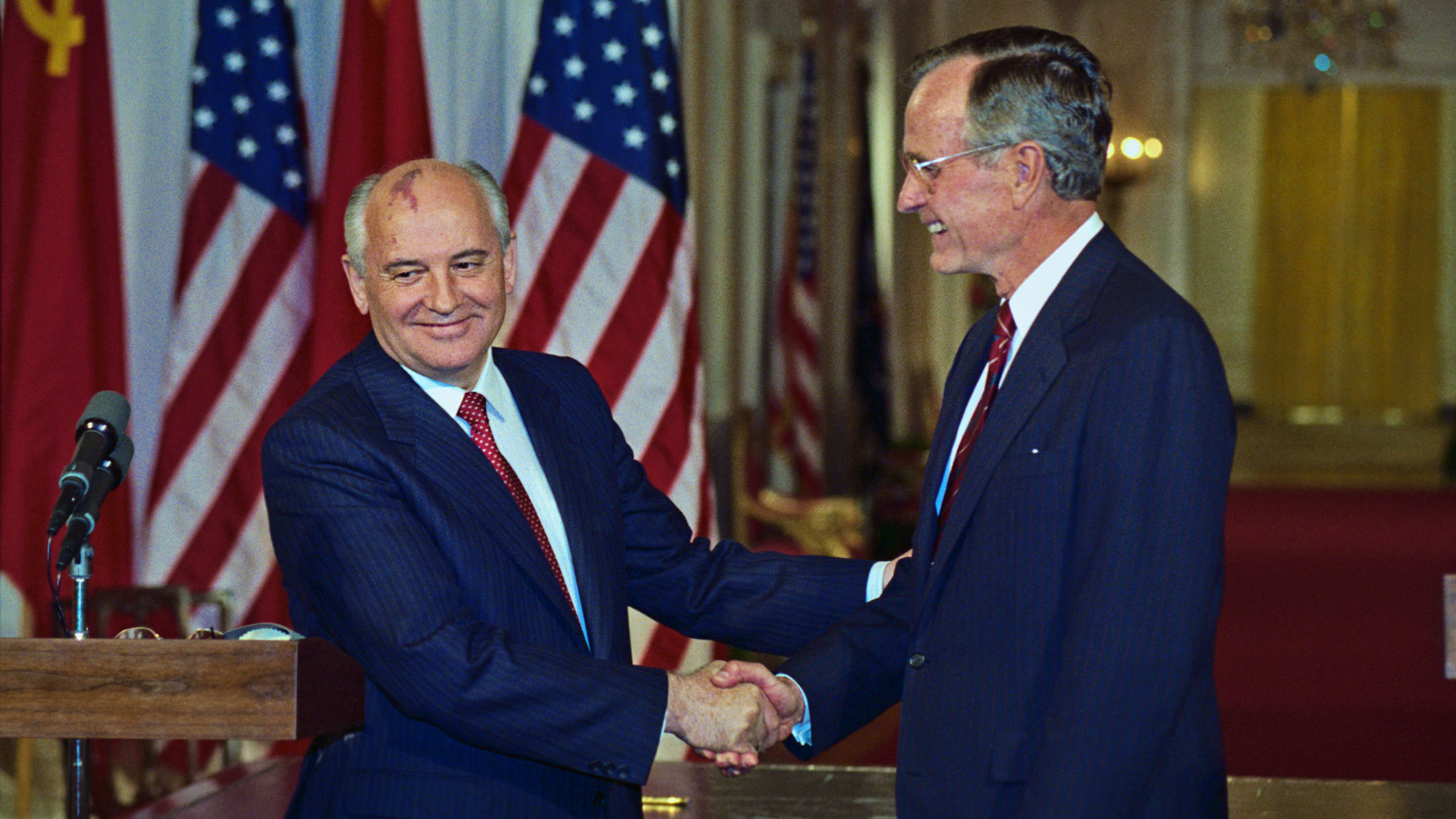For most people alive today, Mikhail Gorbachev’s major role in world history has been largely forgotten. He was a hugely consequential figure, presiding over the winding down of the Cold War and the opening of more conventional diplomatic relations with the West.
I met him in the Great Hall of the Kremlin in 1989. At that time, I was accompanying a large UN-organised group of former heads of governments around the world. Helmut Schmidt, former Chancellor of Germany, had appointed me advisor to this group, known as the InterAction Council.
We were formally Kremlin guests of Andrei Gromyko, who had become titular head of state as the Soviet Union President. I stood by Helmut Schmidt’s side as we were introduced to Gorbachev: he looked disheveled and incredibly tired as he explained — rather defensively — that he was doing his best in spite of the formidable opposition to all of his proposed reforms.
In late 1990 and early 1991, it became apparent to me that his task was simply too great for one politician. When it appeared as though the USSR was about to collapse, various senior KGB officials spoke to me and other Western officials to offer their personal services (by taking advantage of Russia’s liberalising markets at home and abroad). In fact, the outgoing upper ranks of the St. Petersburg KGB led by Putin were busy setting up trading operations with the world for metals and other resources drawn from remote republics like Kazakhstan.
I remember those final months, as I wrote almost daily briefing papers for President George H.W. Bush and my longtime personal friend Larry Eagleburger, Secretary of State, on the decay in political order. I was even kept informed, and wrote about, various independent military plans for a new power structure. The Russian military units were breaking apart as their generals sought ways to seize power for themselves.
From one day to the next, different Soviet tank divisions and mechanised brigades were moving about, positioning for action against one another. I remember Larry Eagleburger telephoning me to say: “Where are you getting this current, hour by hour, information on what is happening in Moscow? Your information is simply ahead of anything I am seeing!” I told him it was coming from the people within state security who are shaping the Russia to come, abandoning the Russia that was there days before.
By 1991 Gorbachev knew he had failed to stop the collapse, but he went on as a private citizen afterwards to encourage continuing dialogue between Russian elites and Western leaders. A failed leader, yes. But he was the man who managed what became a peaceful transition to the new Russian Republic under President Yeltsin. While there was violence in the soon-to-be former republics of the Soviet Union, it could have been far worse under a different leader.
In Estonia for example, I had been active in 1989 and ‘90 in introducing key officials who were already preparing for an expected liberation. So I had an insight into what was a slowly evolving crash of the Soviet bloc. I had little doubt that Gorbachev’s aides were aware of what I was doing, but Moscow security services did not interfere. Looking back, I feel Gorbachev consciously let these kinds of things happen without interference.
So I view Gorbachev favourably for letting forces of fragmentation gain traction, preparing the way for a new Russia. When the time came for the US’s formal resumption of recognition of an independent Republic of Estonia, President Bush inquired if I was willing to be appointed the first US Ambassador to Estonia. He and Eagleburger saw me as already well-connected with the emerging new power structure in Moscow. For personal family reasons, I declined, but still have fond memories of that historic transition and a tiny role I played in helping it move smoothly.











Join the discussion
Join like minded readers that support our journalism by becoming a paid subscriber
To join the discussion in the comments, become a paid subscriber.
Join like minded readers that support our journalism, read unlimited articles and enjoy other subscriber-only benefits.
Subscribe